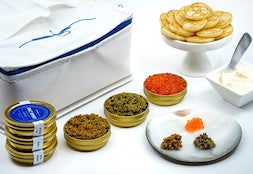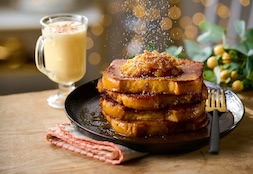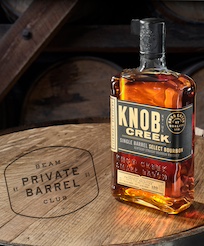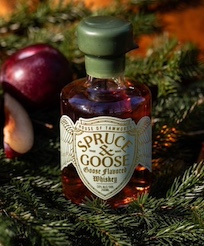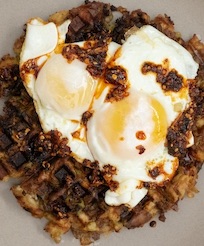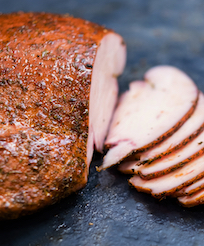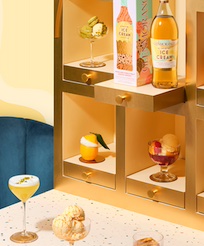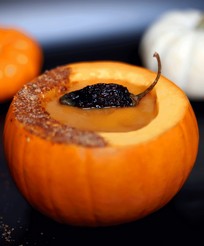If you’ve spent any significant amount of time on the internet recently, it’s possible that you’ve noticed a certain once-beloved beverage has become an unlikely target for jocular but nevertheless mean-spirited tweets and memes. No, it’s not Pabst Blue Ribbon or Miller Light (though definitely those, too). It’s La Croix, the non-alcoholic beverage of choice for Williamsburg Whole Foods shoppers, startup employees and health-conscious Midwestern parents. Once a darling of the digital era, the drink has suddenly fallen out of favor. At least, you know, with the people who make memes about beverages. To better understand how and why this happened, we tracked La Croix from its obscure Midwestern origins to its current status as the object du jour of social media scorn.
Humble beginnings: La Croix was introduced in 1981 by the G. Heileman Brewing Company in La Crosse, Wisconsin (get it? La Croix from La Crosse?). The idea, apparently, was to create a product that could be positioned against sparkling water behemoth Perrier, which at the time was thought to be, according to a report by branding company Meridian Associates, “snobbish / expensive / for special occasions.” Keep in mind, if we learned anything from the movie Heathers, it’s that in the ‘80s, a lot of people thought mere bottled water was an altogether ridiculous (and, I guess, homosexual?) concept, so crafting a sparkling water beverage that appealed to the American everyman was easier said than done. Anyway, the idea was that an appealingly-packaged, good tasting drink with an “all occasions” vibe would fill a hole in the market. While the company ostensibly managed to create this, La Croix nevertheless spent years existing in relative obscurity, a favorite of Midwestern moms who appreciated its relative healthiness when compared to sodas, but not yet a major player on the soft drink stage.
Rebranding: In 2002, La Croix was acquired by the National Beverage Corp. of Fort Lauderdale, Florida, who set about rebranding it in a way that would make it stand out in crowded drink aisles—which explains the neon colors and swirling motif we’ve come to associate with the cans. National Beverage tasked Lyle Zimmerman of Alchemy Brand Group with running the redesign, and Zimmermann told Bon Appetit in 2017 that the goal was to convey an air of “casual sophistication.” He and his team generated some 20 design options, many of which were decidedly minimalist, with long, lean lettering. Ultimately, however, the label design least favored by National Beverage higher-ups was the one that performed best with target consumers. So, of course, that’s the one they chose.
“The strong color-blocking was impossible to miss on the shelf,” Zimmerman recalls. “We weren’t surprised that it was consumers’ preferred option, but we were surprised by how overwhelmingly it was preferred. It was a landslide.” The redesign ultimately won a Gold Global Design Award the next year.
Inauguration into hipster culture: Like so many things that are now well on their way to being uncool, hipsters began to glom onto the beverage in the early 2010s. I mean, with that Dixie-Cup-meets-daytime-disco aesthetic, how could they not? A recent Outline article tracking the rise of the then-startup Groupon notes that, in 2011, a major perk of working in the company’s Chicago office was its fridge full of free La Croix. 2011 was also the year La Croix introduced its Coconut flavor, and according to a story published last year by Serious Eats, it “made a splash through new social media channels, earning fans first among so-called ‘mommy bloggers’ and paleo-diet enthusiasts as a healthful alternative to soft drinks.” Indeed, a 2011 post from a blog called Exploits of a Vegan Wannabe extols the virtues of the drink. “To say it is refreshing is like saying the sun is warm. It is frosty with a hint of coconut and effervescence,” the writer gushes. “Love it, find it, gulp it.”
A ringing endorsement if I’ve ever heard one.
Widespread popularity: Sometime around 2015, the La Croix obsession really kicked into high gear. People were tweeting about it, posting pictures of themselves drinking it, and even penning think pieces about its relative merits, as internet writers are wont to do. Buzzfeed published a list of "21 Things Everyone Obsessed With La Croix Knows To Be True," which is as sure a sign as any that there's an established culture around a given product. As of that year, sales of the beverage had tripled since 2009. And anyone who lives in New York will likely remember that when the much-maligned Williamsburg outpost of Whole Foods first opened in 2016, it featured a giant wall of La Croix cases, which was feverishly documented on social media by amused and delighted shoppers.
In early 2016, people began making memes specifically about La Croix’s Pamplemousse flavor, with the general premise being that it was the most delicious thing on earth. One particularly amusing one shows the scene from Titanic in which Jack is sketching Rose naked. Except, when the sketch is shown in the meme's second frame, we see that instead of drawing the beautiful naked woman in front of him, he’s been rendering a picture of a Pamplemousse La Croix can. The obsession eventually snowballed into a rivalry between Pamplemousse devotees and memers who preferred the Coconut flavor. Things got pretty heated.
Oversaturation: By 2017, every website and food blog worth its domain name had posted multiple articles containing recipes for La Croix-based cocktails (because merely dumping some vodka in with the sparkling water beverage was clearly not good enough). La Croix t-shirts and even Christmas ornaments were being sold on Etsy. New York magazine published a ranking of the best places to purchase the stuff. Sales were, obviously, through the freakin’ roof, propelling CEO and majority shareholder Nick Caporella to billionaire status.
Inevitable downfall: Ultimately, anything that urban-dwelling millennials with an assumed level of disposable income favor will inevitably be maligned by the greater culture. This is fact. And in the early months of this year, people began tweeting unfavorable things about La Croix. Most of these tweets center on finding impressively creative ways to describe how weak the fruit flavors of La Croix are. Which, if you thought that was kind of the point of La Croix, you are not wrong. Nevertheless, many of these tweets are undeniably hilarious.
Sites like College Humor and Mashable have recently published articles featuring the best of the so-called "brutal roast" of La Croix. Whether this factors into a measurable decline in consumption of the beverage remains to be seen—after all, sometimes a tweet is just a tweet (and profits were still on the rise as of last fall). And sometimes a seemingly mean tweet has a loving spirit behind it. But by replying to some of the salty tweeters— as La Croix's savvy social media managers have begun doing—it appears the once-beloved beverage won't go down without a fight.


